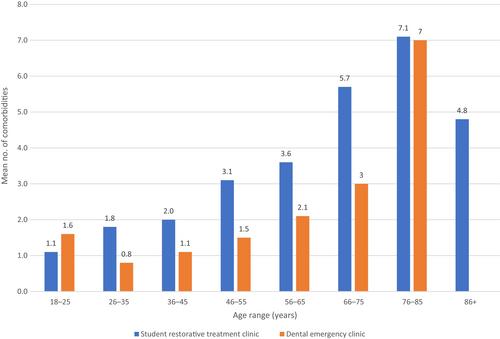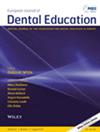Medical history complexity of patients attending dental student restorative treatment clinics compared with dental emergency clinics
Abstract
Introduction
Dental students should graduate from undergraduate programmes with the knowledge and skills to safely manage patients. This requires exposure to patients with a range of medical needs, which may impact the planning and delivery of care.
Aims and Objectives
We wished to establish the medical history complexity of patients presenting to student restorative clinics and compare them to patients attending a dental emergency clinic.
Materials and Methods
We recorded the medical history data of 200 anonymised patients attending student restorative clinics and compared them to previously collected data from 200 dental emergency clinic patients. We collected basic demographic data (age/gender) and noted the number of medical disorders, amount of comorbidity and the number and types of medications for each patient.
Results
The age and medical complexity of patients were different, with fewer young patients seen in the dental restorative clinics. Patients attending restorative clinics were more likely to have multiple comorbidities and took greater numbers and types of medications than those seen in dental emergency clinics.
Conclusions
For patients seen in student restorative clinics, medical histories are taken once at the beginning of care and the subsequent treatment plan is delivered over many appointments accounting for that medical history. Emergency clinic patients attend for single treatment episodes and their medical complexity is immediately relevant to the treatment offered. Students have multiple, single encounters with patients in emergency clinics. In both clinics, dental treatment plans need to be adjusted to account for patients' drugs and diseases, providing opportunities to consolidate human disease learning.


 求助内容:
求助内容: 应助结果提醒方式:
应助结果提醒方式:


